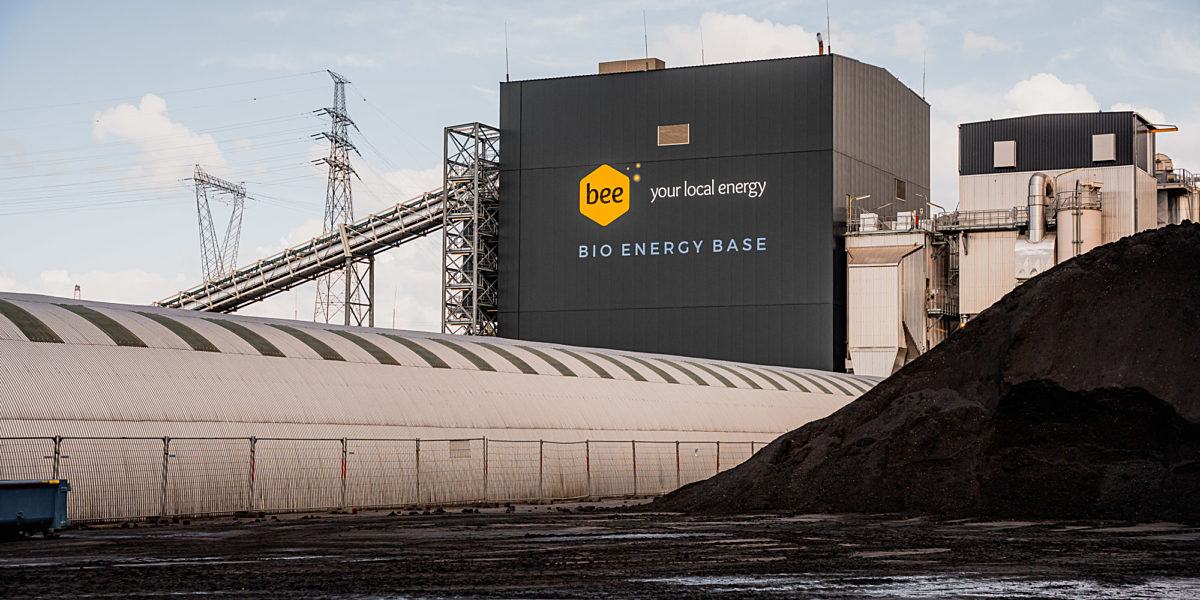
From non-reusable wood to renewable energy: the Bio Energy Base Ghent


20 MW green power
50.000 households

150.000 tons
Non-reusable wood transformed into energy on yearly base

88.000 tons
Yearly carbon dioxide emissions saved compared to a classic plant

174
The equivalent of 174 wind turbines
Ghent emerged as a trade center in the Middle Ages. Ever since, a port connects the city to the North Sea. At first, it was located in the heart of town. But growth and development ran into boundaries. So the harbor moved up north. Today it is an area stretching over 60 kilometers, even linking Belgium and the Netherlands together.
The Port of Ghent is a vital part of the Flemish economy. It has been the engine of economic booms and the victim of busts. Its infrastructure reflects the rise and fall of industrial cycles. This happens again as an old and dark coal terminal is transformed into the home of the Bio Energy Base Ghent. This is a landmark of a new economic era, driven by renewable energy.
The Bio Energy Base Ghent reached its first step of completion in 2021. It has the potential to reshape the entire nature of industrial activity in the Port of Ghent.
A circular approach to renewable energy sources
But first, let’s take a look at the basics of this 100% privately funded project developed and owned by Belgian Eco Energy (BEE), co-funded by the London based investor Equitix, National Westminster Bank and the Belgian cooperative Zonneberg.
The Bio Energy Base turns biomass into electricity, steam and heat. The base gives non-reusable waste wood a new life, creating renewable energy for the industry. Last but not least, the Bio Energy Base adapts a circular approach to each step of the process.
First and foremost, biomass is indeed widely regarded as a carbon dioxide neutral source of energy. Trees capture CO2 over the course of their lifetime as part of the photosynthesis process. That same amount, and nothing more, is released when burning the wood. This marks the difference with fossil fuels.
Second: when we talk about non-reusable wood, keep in mind that this definition is not easily attributed. In this particular case, the waste agency of the Flemish Government (OVAM) carries out a severe triage, after which the wood is approved as non-recyclable.
So, every bit of wood that is turned into energy, actually gets saved from a certain end-of-life somewhere on a dump. The Bio Energy Base turns a deadweight loss to both the environment and the economy into a source of green and renewable energy for the industry.
Another heavy burden to carbon footprint could be transportation. Not so at the Bio Energy Base. The wood is collected from within Belgium, the Netherlands and Luxembourg. It never travels more than 250 kilometers and it does so mainly through inland shipping.
Complying with the most extreme standards, using flue gas treatment
The circular approach on the input side is impressive, just as the short supply chain logistics. But the output process has also been designed and optimized with great vigor to reach an unmatched efficiency, while complying with the most severe air and water emission standards using flue gas treatment.
To begin with, the extreme efficiency stems from the short chain approach of the Bio Energy Base. All of the heat and steam produced during the process is used to supply neighboring plants. Every unit and form of energy is applied. Nothing goes to waste and it’s all about renewable energy sources.
Next the flue gases undergo a hypermodern and sophisticated filtering process to remove the NOx, acids and dust. This is a hypermodern and sophisticated filtering process. The result is spectacular, eradicating harmful substances from release into the air or water. It doesn’t get cleaner than the Bio Energy Base.
What is left is simply ash. And even that residual has the potential to rise like a Phoenix. Research conducted with, amongst others, the University of Ghent, promises future-oriented applications for, e.g., building and construction. Moreover, BEE has joined the CCU North Sea port, to share knowledge on carbon capture and utilization on a large scale.
Convinced and ready to cooperate with us?
BEE has all the technical and financial expertise in-house with a proven track record in renewable energy sources such as heat, sun, wind and bio. We are happy to discuss the possibilities for your project together!

